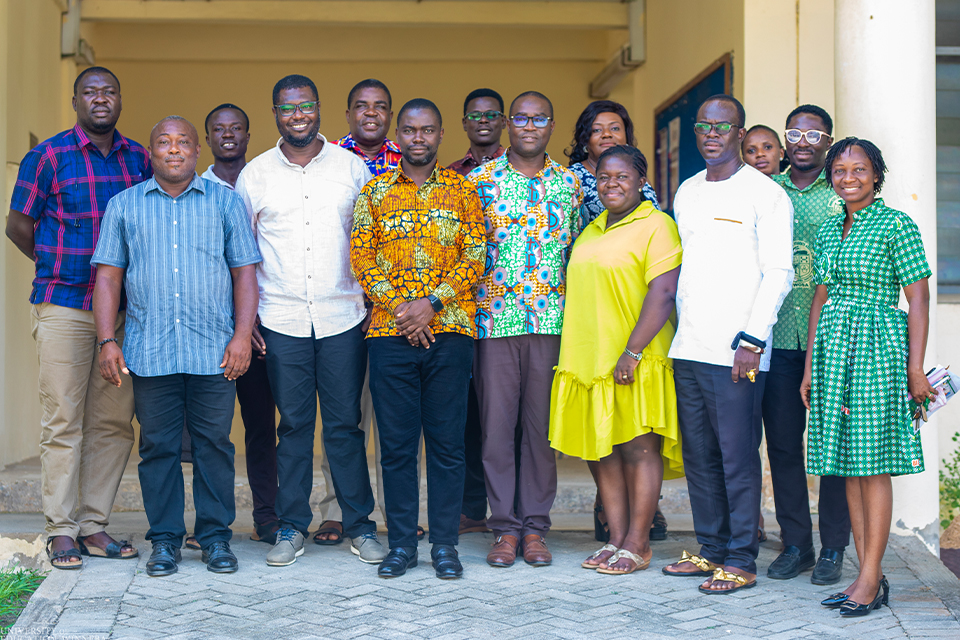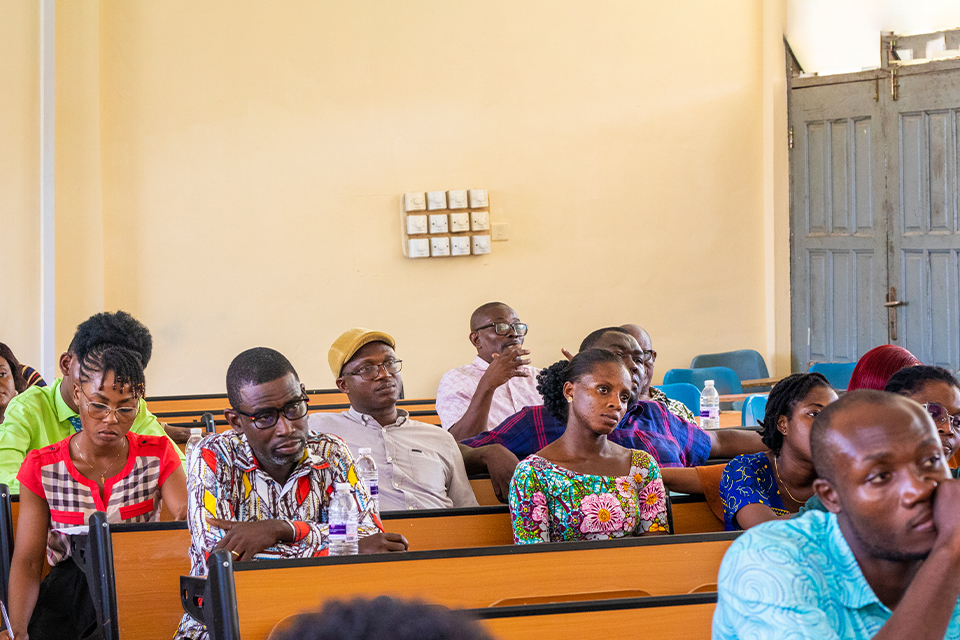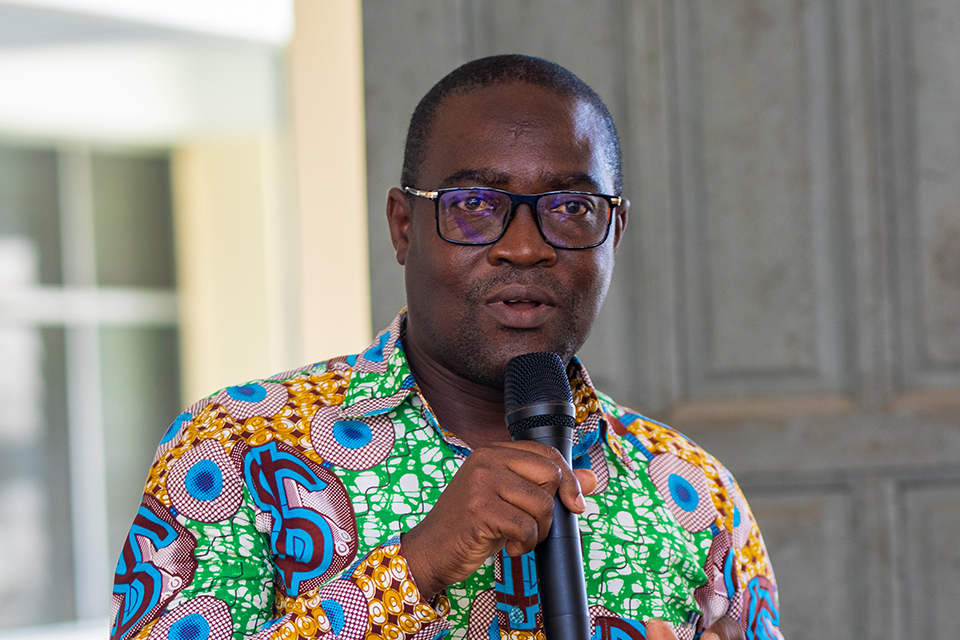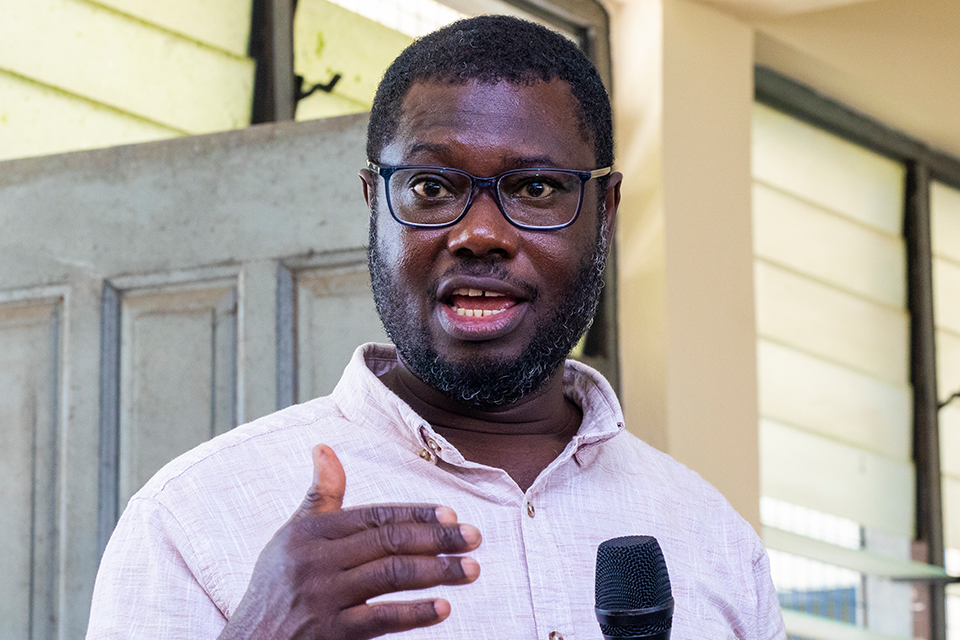UEW Set to Collaborate with UCC's Centre for Coastal Management

The University of Education, Winneba (UEW) is set to collaborate with the University of Cape Coast's Centre for Coastal Management (CCM) in a groundbreaking partnership to advance the sustainable management of marine resources and ecosystems in Ghana.
This development emerged during a recent meeting with a delegation from the CCM at Lecture Hall II of the Faculty of Science Education (FSE) Block, South Campus, UEW. The FSE team engaged with the CCM and other stakeholders to outline a collaborative programme to enhance data management related to Ghana's marine resources.

The meeting brought together experts and educators passionate about sustainable management practices for the country's rich coastal and marine ecosystems. Attendees shared a wealth of insights on innovative strategies for collecting, analysing, and utilising data, on ensuring the long-term viability of marine resources essential to the livelihoods of communities along the coast.
Key discussions centred around integrating technology into data collection processes, including remote sensing, geographic information systems (GIS), and community-based monitoring systems. Participants emphasised the importance of harnessing local knowledge with scientific data to form a comprehensive understanding of marine ecosystems and to support effective decision-making.

Prof. Arkoful Sam, Vice-Dean of FSE, disclosed in an interview that the collaboration would facilitate the sharing of research data and enhance the visibility and branding of UEW. He explained that the UCC’s Regional Oceans and Coastal (ROC) is a data hub for marine and coastal research, providing an open-access platform for researchers to publish their raw data. He encouraged UEW researchers, particularly those in the Faculty of Science, to submit their data sets to the CCM.
“The partnership is expected to benefit various departments within the Faculty of Science, including Biology Education, Chemistry Education, Physics Education, Environmental Science, and Agriculture,” he said. Prof. Sam noted that the collaboration would provide a platform for researchers to make their raw data available, even if their research work had already been published elsewhere.
Prof. Sam stated that UEW is awaiting a draft memorandum of understanding (MoU) from UCC. “Once received, the document will be reviewed by UEW's management, legal department, and other necessary outfits.” Prof. Sam expressed optimism that the partnership would be finalised within the shortest possible time.

Dr. Emmanuel Acheampong, a senior lecturer at the School of Biological Sciences, UCC, highlighted the challenges of managing data in Ghana to support research in coastal marine spaces. “Currently, different national agencies and authorities oversee various aspects of development, resulting in fragmented data management,” he remarked.
Dr. Acheampong explained that this fragmented approach makes it difficult to have a holistic understanding of developments in coastal marine spaces. “To address this challenge, the University of Cape Coast has established the ROC data hub, which aims to bring together data from different government agencies and research institutions. However, progress has been slow due to bureaucracies and legal processes,” he asserted. Dr. Acheampong noted that government institutions see data as a source of power and revenue, making it challenging to convince them to share their data in an open-access repository.
Dr. Acheampong indicated that the collaboration with UEW is part of the ROC data hub's efforts to bring together data from various institutions. He emphasised that UEW's research in coastal marine spaces aligns with the ROC data hub's objectives, making the collaboration strategic.
“In addition to UEW, the ROC data hub is also collaborating with other institutions, including the University of Ghana, the Water Research Institute of the Council for Scientific and Industrial Research (CSIR), and the University for Development Studies.” Dr. Acheampong hoped these collaborations would help address data management challenges in Ghana's coastal marine spaces.
As the effects of environmental degradation become increasingly evident, this collaboration symbolises a proactive approach to safeguarding Ghana’s marine heritage. The outcomes of this partnership are expected to set a benchmark for future collaborative efforts across educational and research institutions, ultimately contributing to more sustainable management of marine resources for generations to come.








